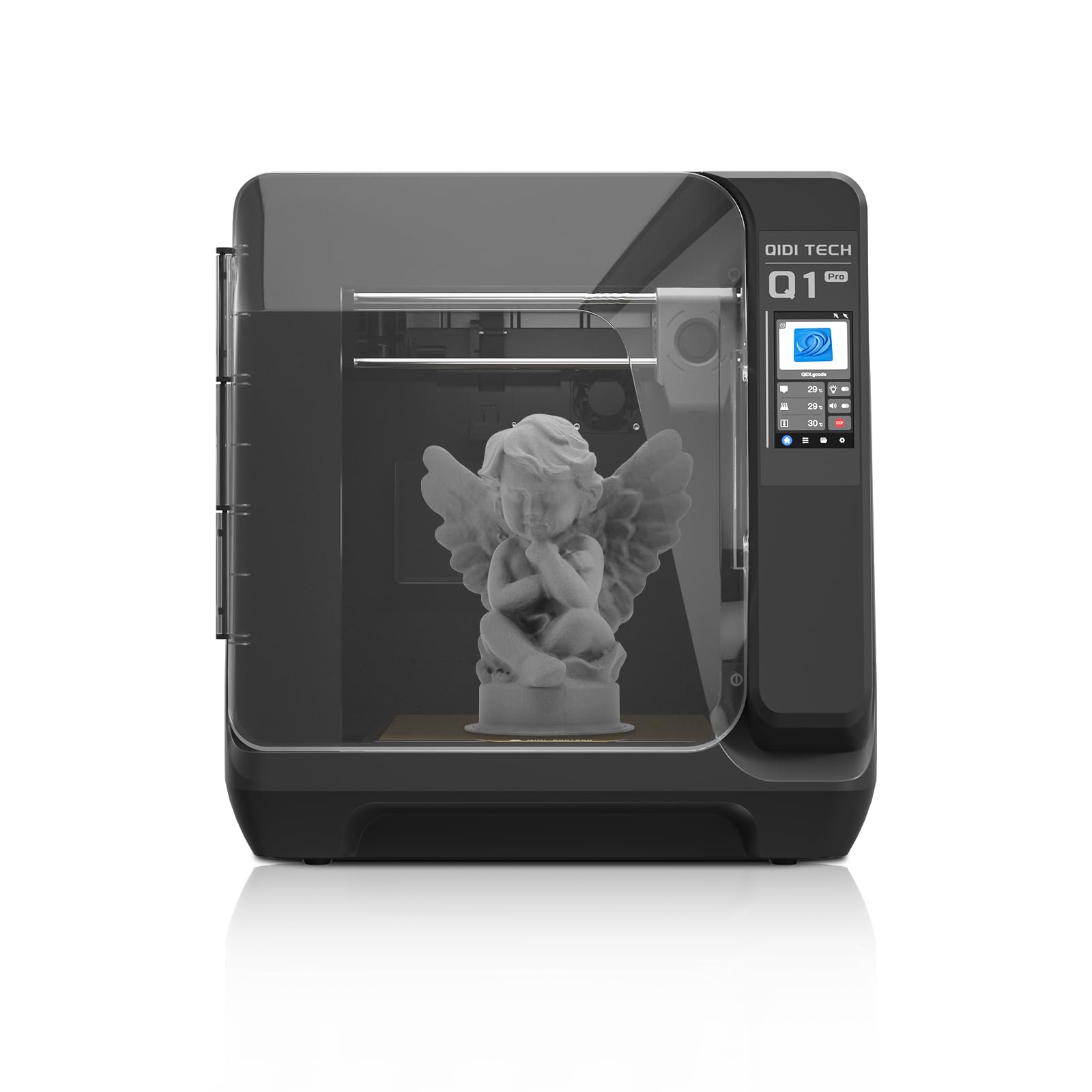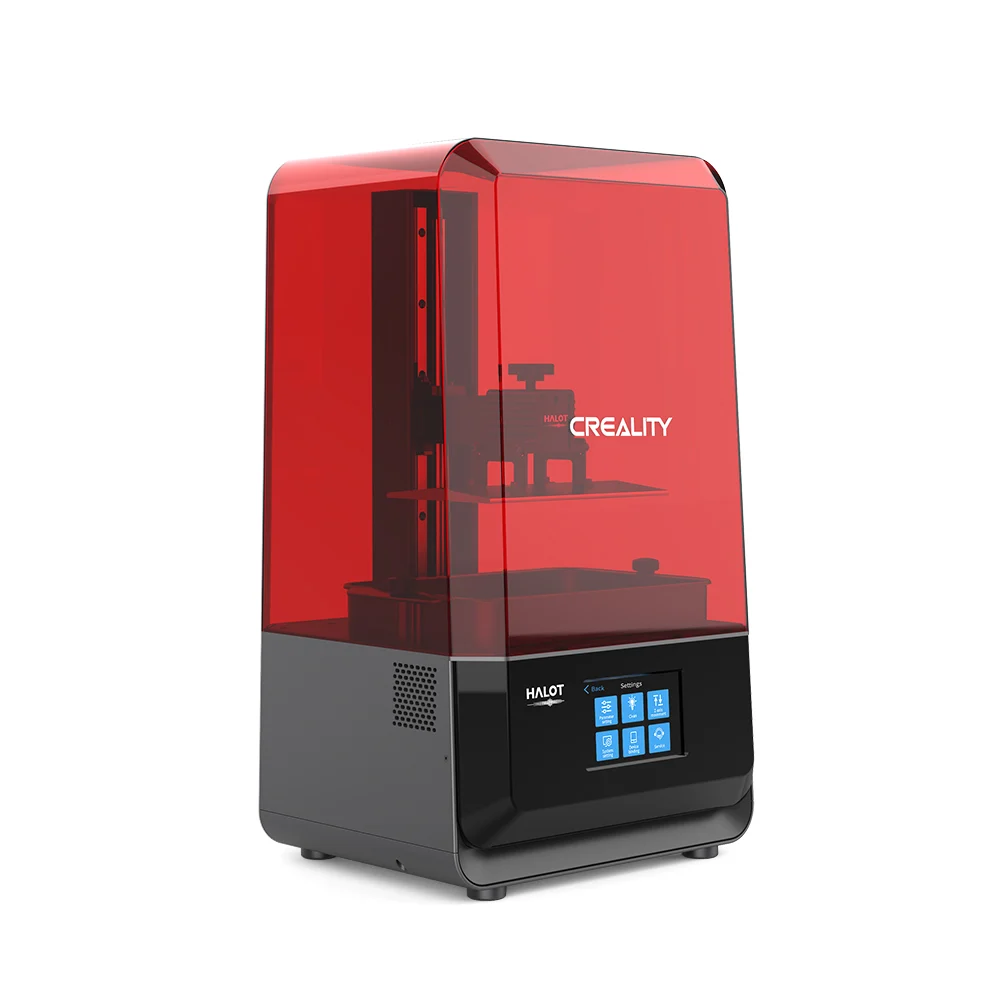Compare Q1 PRO vs Halot Lite
Comparison between the best 3D printers
Choose the best 3D printer at the best price. The cheapest 3D printers are here.
Buy a 3D printer here with 3D Fila.
 |
 |
|
| Model | Q1 PRO[BUY Q1 PRO] |
Halot Lite |
| Printing Material | Filament | Resin |
| Buy Filament for QIDI Q1 PRO | Buy Resin forCreality 3D Halot Lite | |
| Estimated price | $449,00 | $400,00 |
| Manufacturer | QIDI | Creality 3D |
| Release Year | 2024 | 2021 |
| Print Volume [mm] | 245x245x245 | 192x120x200 |
| Printer Size [mm] | 467x477x489 | 330x301x572 |
| Weight [kg] | 20 | 10,6 |
| Power Loss Recovery | YES | NO |
| Maximum Resolution [mm] | 0,1 | 0,01 |
| Processor | Cortex-A53,64-bit Processor | |
| Display | Touchscreen 4,3'' | Display touchscreen 5'' |
| Power Supply | 350 W | |
| Connectivity | WiFi/USB Flash Drive/Ethernet Cable | SD / USB |
| Operating systems | Windows, Linux, Macbook | Windows, Mac, Linux |
| Date of registration in the system | 2024-07-09 | 2022-11-04 |
| Release date | 2024 | 2021 |
| Extra features | The QIDI Q1 Pro 3D printer stands out for its Core XY structure and heating chambers that reach up to 60ºC, ideal for advanced materials such as ABS and Nylon. It features Klipper firmware, an automatic leveling system, a high-flow extruder with a double metal nozzle and a hotend that reaches 350ºC. It offers connectivity via Wi-Fi, USB and Ethernet, as well as a 1080p camera for remote monitoring and an intuitive touchscreen for easy operation. | Crealitys Halot Lite printer stands out in the mid-size resin 3D printing segment, with a build volume of 192 x 120 x 200 mm and 50 micron resolution. It offers a monochrome LCD for fast and durable printing, and an upgraded light source that ensures over 80% uniformity across the print bed. It includes Wi-Fi connectivity for remote control and updates, an ARM Cortex CPU for efficient performance, and is compatible with Halot Box and Lychee slicing software. It also has an activated carbon filter to reduce odors. |
| Support for multiple colors and materials (AMS and CFS) | NO | NO |
Notes * |
||
| Cost-benefit | 8 / 10 | 8 / 10 |
| Hardware | 4.8 / 10 | 1 / 10 |
| Tela | . | . |
| Print volume | 3 / 10 | 3 / 10 |
| Performance | 5 / 10 | 9 / 10 |
| [BUY Q1 PRO] |
Conclusion |
| In comparing the QIDI Q1 Pro and Creality 3D Halot Lite, both printers showcase strengths that cater to different user requirements and printing needs, leading to an overall assessment that factors in both cost and performance. The QIDI Q1 Pro, while slightly more expensive, benefits from a larger print volume and advanced features such as a high-flow extruder, a dual metal nozzle, and the capability to handle a variety of materials including ABS and Nylon. Its touchscreen interface, extensive connectivity options, and power loss recovery feature enhance its user-friendliness and reliability, making it suitable for serious hobbyists and professionals seeking advanced functionality and versatility. On the other hand, the Creality 3D Halot Lite, which comes at a lower price point, excels in resin printing, providing high precision and a solid print quality. Its monochrome LCD and upgraded light source ensure consistent results, making it a viable option for users focused on detail-oriented applications like miniatures or intricate designs. However, it is limited by its smaller print volume and lacks features such as power loss recovery. Ultimately, the best choice between these two models depends on the user's specific needs. For those seeking a robust and versatile option with the capacity for advanced materials and larger prints, the QIDI Q1 Pro is the clear winner. Conversely, for users who primarily work with resin and prioritize detailed outputs in smaller formats, the Halot Lite provides excellent value for its price. Both printers score similarly on cost-benefit ratios, yet their distinct features cater to different segments of the 3D printing community. |

